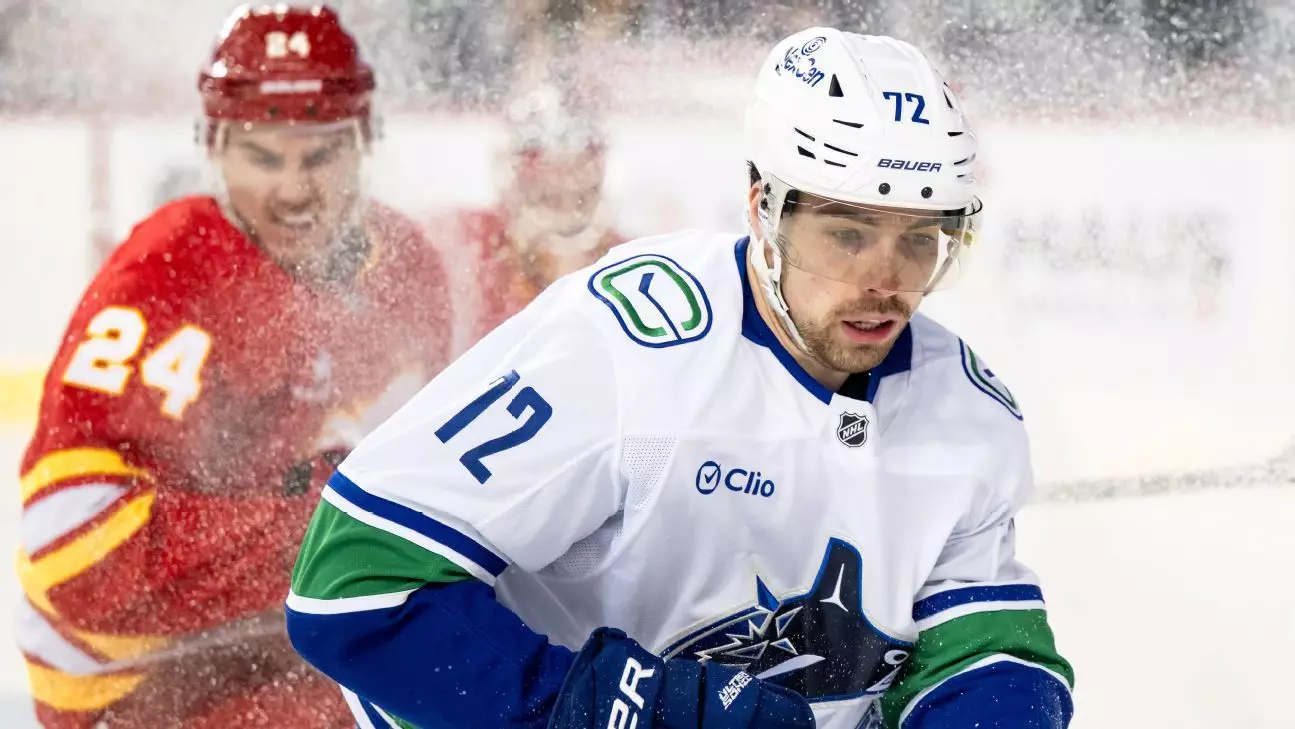In an unforgiving sports world, the Vancouver Canucks are currently navigating one of their toughest seasons, primarily influenced by a slew of injuries. At the center of this tumultuous journey is Filip Chytil, whose struggle with concussions has overshadowed what could have been a promising year on the ice. The team’s coaching staff, led by Rick Tocchet, has been confronted with the challenging task of managing player health while striving for success in the face of adversity. Chytil’s ongoing battle with concussion symptoms raises critical questions about player health, safety, and the ethical responsibilities of coaching staff and management.
Chytil sustained his latest concussion following a hit from behind on March 15, an incident that has become emblematic of the physical risks athletes face in high-contact sports like hockey. The 25-year-old Czech player has shown both resilience and tenacity as he attempts to return; however, the inconsistency in his physical state has rendered his participation this season highly uncertain. With the imminent possibility of missing the rest of the season looming over him, one must wonder how ongoing injuries affect not only team dynamics but also the individual lives of the players involved.
The Concerns of Concussions
The discussion surrounding concussions in hockey is a heavy one, laden with fears over long-term health and performance implications. Tocchet has candidly noted the unpredictable nature of Chytil’s recovery, mentioning how the player’s good and bad days create a complicated scenario for their lineup. The acknowledgment of Chytil’s improved recovery from his previous concussion “not being as bad” is a glimmer of hope, yet it also highlights the need for ongoing medical insights and support. In an industry that prioritizes performance, the welfare of the player must remain paramount, underscoring potential conflicts between individual health and team pursuit of victory.
This brings about a broader discussion: Should teams sacrifice short-term gains for the long-term health and safety of their players? For Chytil, the prospect of another concussion could put his career on a precarious edge—one that sports organizations must address more directly. As someone with a history of multiple concussionsat such a relatively early stage in his career, the stakes for both player and organization are exceptionally high.
Trials Facing the Canucks
Compounding the situation, Chytil is not alone in battling adversity; the roster of the Vancouver Canucks has been ravaged by injuries, collectively testing the resolve of the entire team. The loss of other critical players, including Elias Pettersson, Quinn Hughes, and the often-absent Thatcher Demko, has left the Canucks in a precarious position as they aim to secure playoff spots. The team’s inability to find consistent success on the ice amid these injuries could lead to a feeling of disillusionment—a detrimental factor that could hinder overall morale.
Yet amidst this backdrop, it is remarkable to witness the spirit that permeates through the ranks of the Canucks. Demko’s optimistic outlook despite mounting challenges illustrates a level of commitment that is not universally observed in professional sports. The resilience of the team’s mindset becomes a vital force, as players strive to show up night after night, prioritizing effort even against overwhelming odds.
A New Era of Team Culture
In light of the various challenges, Coach Tocchet has stressed the importance of strong team culture and unity. Under dire circumstances, it is when teams are able to come together that they begin to forge their identity. The Canucks may not be poised for an easy playoff run, but their collective attitude—or lack thereof—will shape perceptions of their season, not merely in terms of wins and losses but in terms of the grit shown when under pressure.
A committed team culture can play a vital role in overcoming adversity. It’s a beacon of positivity that can inspire younger players and offer a roadmap to navigate anxiety and uncertainty. The idea of “who’s all in” fosters camaraderie and resilience, offering players a sense of belonging, especially in times of hardship.
In essence, while the Canucks tackle obstacles that threaten to overshadow their aspirations, their battle for identity, responsibility, and health raises pivotal discussions for the future of the sport and the well-being of those it represents. Each game presents a new chapter, an opportunity for resilience, and a chance to redefine what success truly means.

